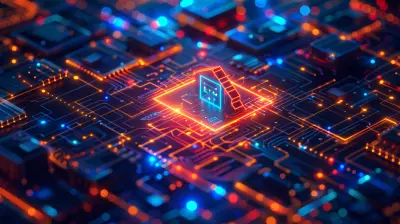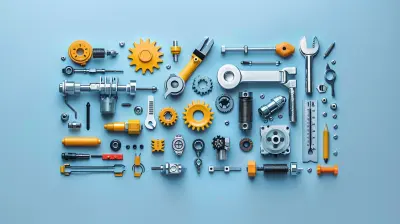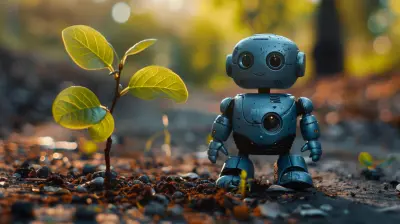How AI is Shaping the Next Wave of Smart Cities
25 May 2025
Technology is advancing at lightning speed, and one area that's benefiting massively is urban development. Cities worldwide are getting "smarter," but what does that really mean? At the core of smart cities lies artificial intelligence (AI) — the invisible force driving efficiency, sustainability, and improved quality of life.
But how exactly is AI shaping the future of urban living? Let's dive into the fascinating world of smart cities and see how AI is redefining them in ways we couldn’t have imagined a decade ago.
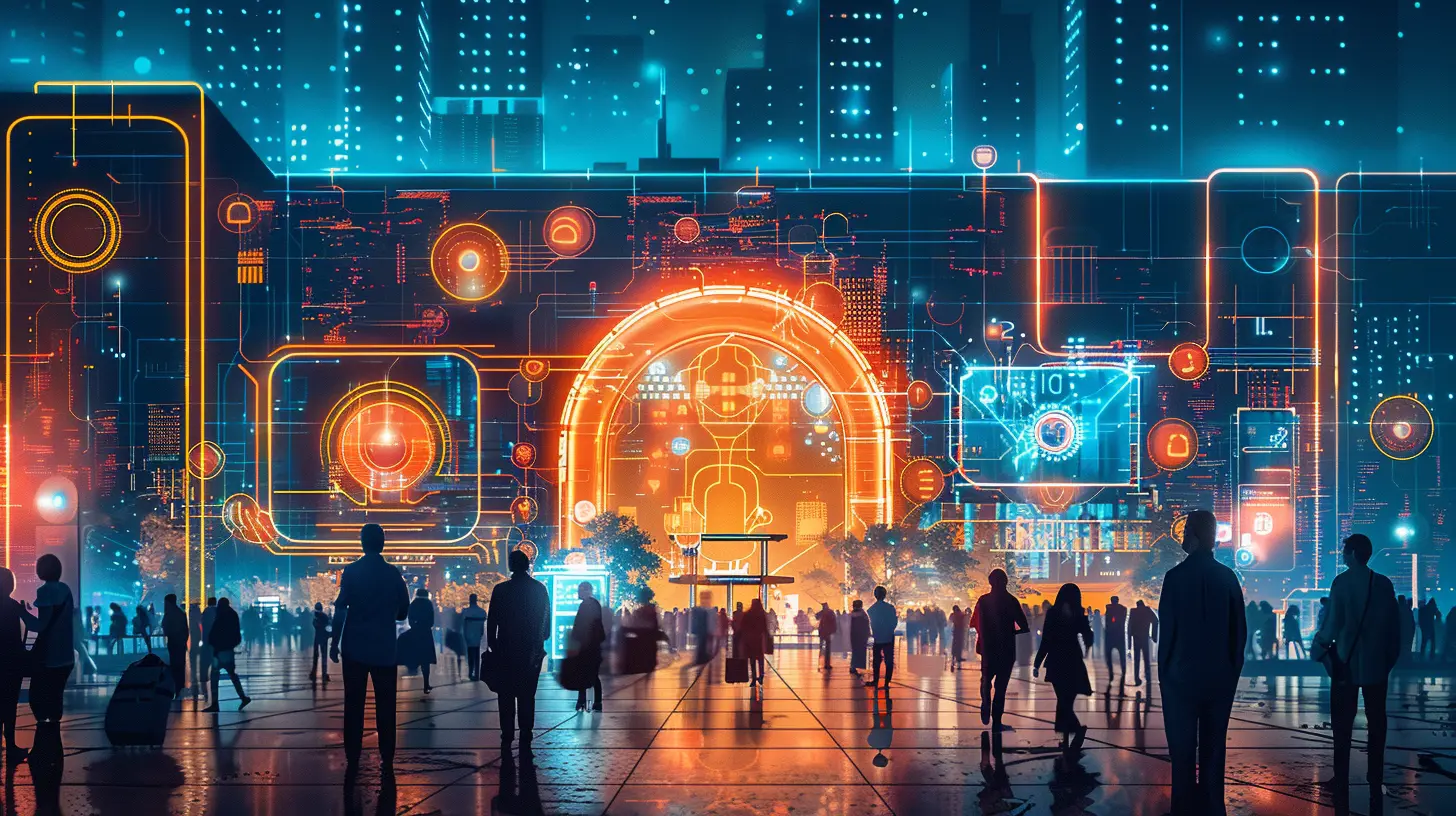
What Exactly Is a Smart City?
Before we talk about AI’s role, let’s break down what a smart city even is. A smart city leverages technology, data, and connectivity to improve municipal efficiency, lower energy consumption, and enhance the lives of citizens.Think of it as a well-oiled machine where everything — from traffic lights to waste management — runs on intelligent systems designed to make urban living seamless. And at the heart of all this is AI, analyzing vast amounts of data to optimize city infrastructure while making life easier for residents.
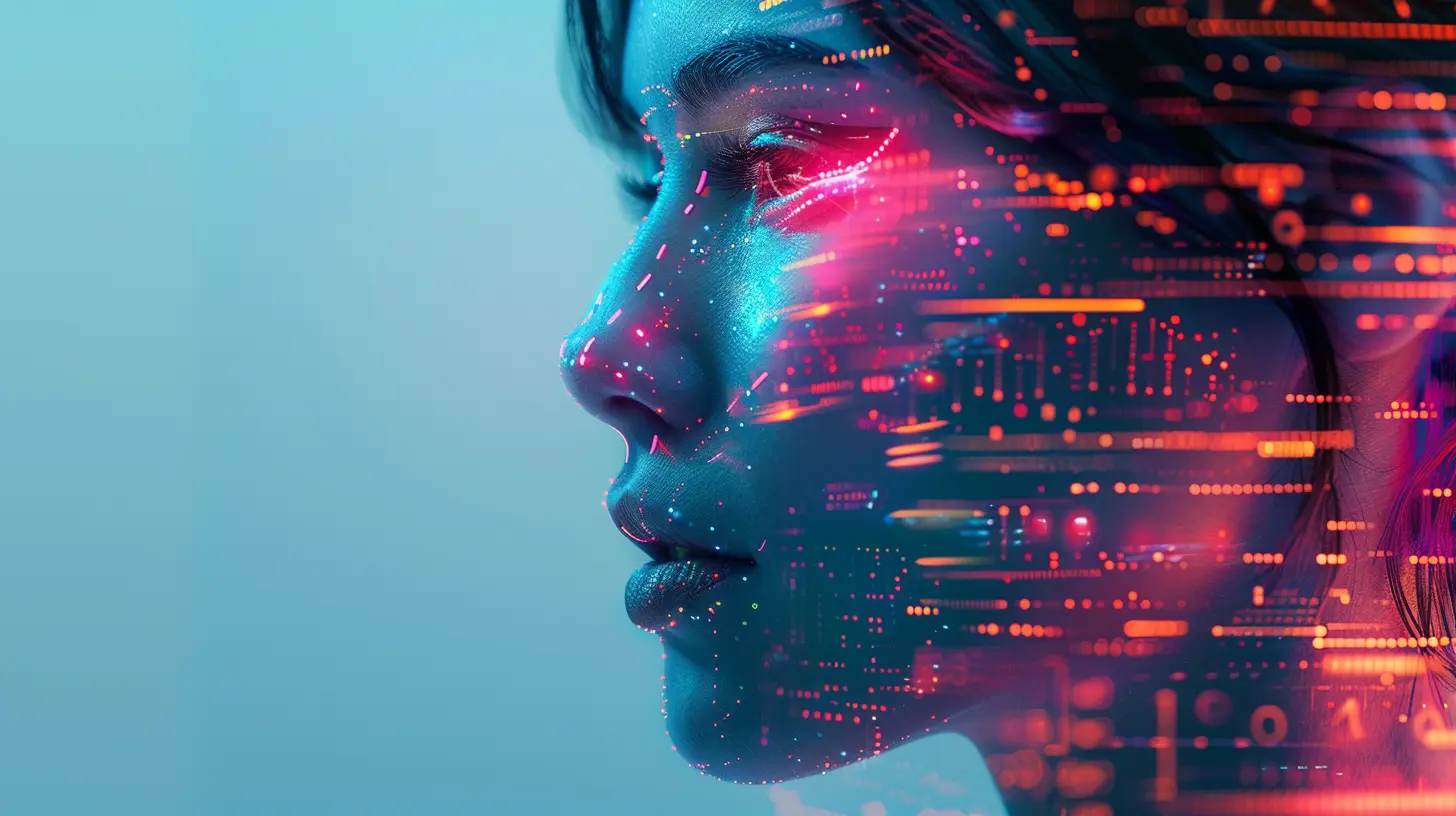
How AI Is Transforming Smart Cities
AI is doing way more than just automating tasks. It’s making cities safer, more sustainable, and responsive to the needs of their people. Let’s look at some key areas where AI is making a significant impact.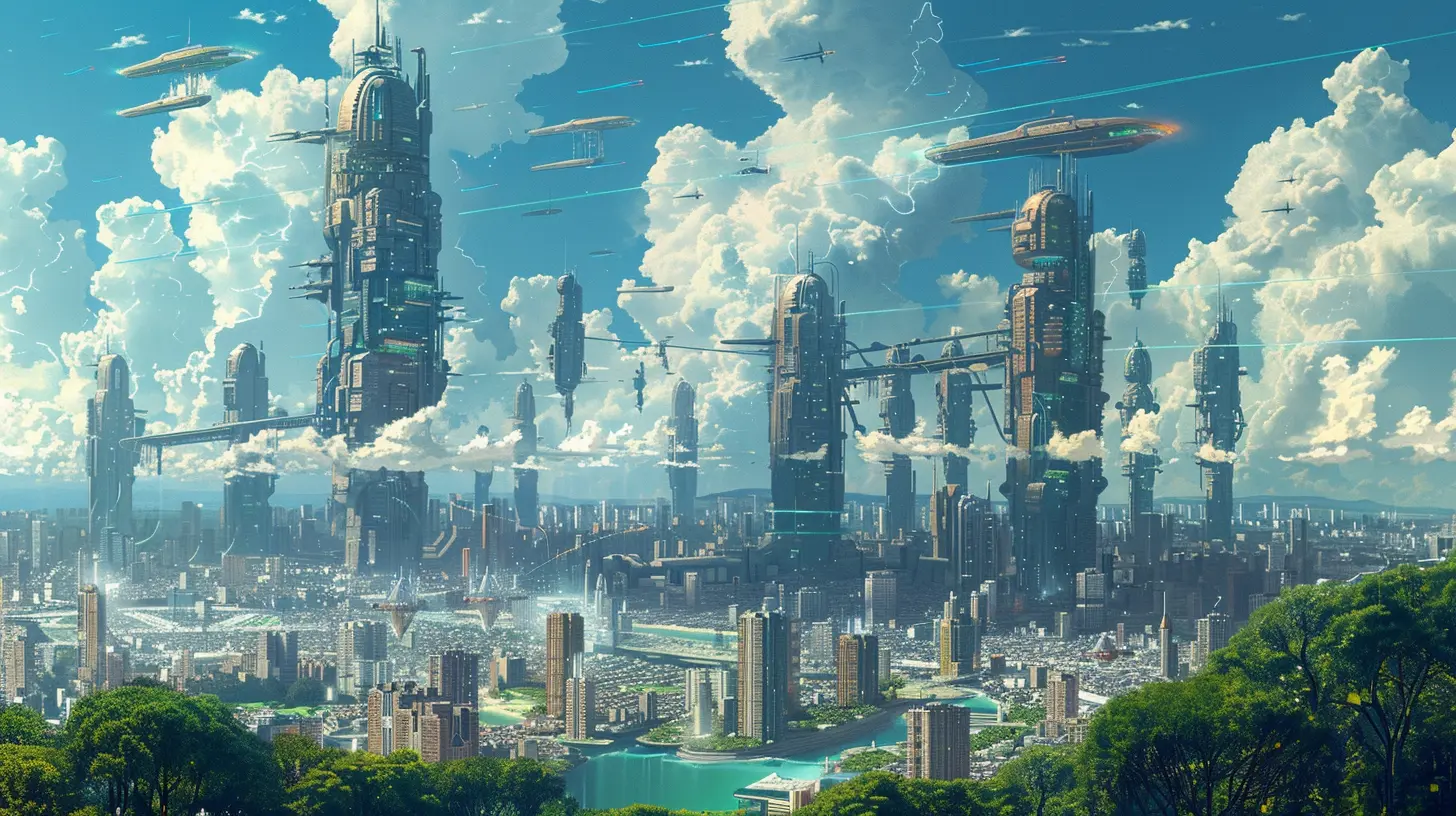
1. AI-Powered Traffic Management
Ever been stuck in traffic and wished there was a way to magically clear the road? Well, AI is almost making that possible.With real-time data from traffic cameras, sensors, and GPS devices, AI-powered systems analyze congestion patterns and adjust traffic signals accordingly. Cities like Los Angeles and Singapore are already using AI-based traffic control to improve traffic flow and cut down on commute times.
And it doesn’t stop there — AI can also predict traffic jams before they even happen! By analyzing historical traffic data and current conditions, AI algorithms provide alternative routes to avoid gridlocks.
🚦 The Future of Mobility
Imagine a world where traffic lights change dynamically depending on how many cars are on the road. No more unnecessary red lights when the street is empty! AI is paving the way for smarter mobility, reducing accidents, and even enabling better public transportation synchronization.2. Intelligent Waste Management
Trash collection might not be the most exciting topic, but AI is making it a whole lot smarter.Traditional garbage collection follows fixed schedules, whether bins are full or half-empty. AI-powered waste management systems use sensors in trash bins to monitor fill levels and send alerts when they need to be emptied.
This means fewer unnecessary trips, reduced fuel consumption, and lower operational costs. Cities like Barcelona and Amsterdam are already implementing AI-driven waste collection systems, cutting down on unnecessary pollution.
🌍 A Step Towards Sustainability
Smarter waste management means less litter, reduced landfill overflow, and a smaller carbon footprint. AI is transforming waste disposal from a rigid routine into a dynamic, demand-driven system.3. AI in Public Safety & Crime Prevention
Keeping cities safe has always been a top priority, but AI is stepping up security measures in ways that were once science fiction.AI-powered surveillance systems use facial recognition and behavior analysis to identify suspicious activities in real-time. If an unusual movement is detected, law enforcement can be alerted instantly, helping prevent crimes before they happen.
👮 Real-Time Crime Prediction (Yes, Like Minority Report!)
While we’re not quite at the level of predicting crimes before they occur like in movies, AI can analyze past criminal data and identify high-risk areas, allowing resources to be deployed more effectively.Some cities use AI-driven predictive policing to allocate officers based on crime trends, making law enforcement more proactive rather than reactive.
4. Smarter Energy Use & Sustainability
Energy consumption in cities is skyrocketing. With growing populations, our power grids are under serious pressure. Fortunately, AI is optimizing energy usage in ways that reduce waste and promote sustainability.Smart grids powered by AI can analyze consumption patterns and predict energy demand, automatically adjusting distribution to minimize wastage.
💡 AI-Powered Smart Buildings
Buildings equipped with AI-driven energy management systems adjust lighting, heating, and cooling based on real-time occupancy. This means offices don’t waste electricity running air conditioning when no one is inside.Some cities are even integrating AI with renewable energy sources. AI can analyze weather patterns to predict solar and wind energy availability, helping balance supply and demand more efficiently.
5. Personalized Public Services
AI isn’t just about infrastructure — it’s also making public services more efficient and personalized.Ever had to go to a government office for a simple document and waited hours in line? AI-powered chatbots and virtual assistants are helping streamline customer service interactions, reducing wait times and improving accessibility.
Many cities are implementing AI-driven platforms to handle public inquiries, process applications, and even assist in emergency response situations.
📞 AI as Your Virtual City Guide
Imagine asking a city chatbot about road closures, weather updates, or the nearest charging station for your electric car — and getting instant answers. AI is making local governance more responsive and citizen-friendly.6. AI-Driven Healthcare Systems
The pandemic showed us how critical healthcare infrastructure is. AI is playing a significant role in making healthcare systems more responsive and efficient in smart cities.Hospitals equipped with AI-driven systems can predict patient inflows, optimize hospital beds, and even use AI-powered diagnostics for faster disease detection.
Some cities are using AI to analyze health trends and predict outbreaks, allowing authorities to take preventive measures before a crisis escalates.
🏥 Telemedicine & AI Chatbots
AI-powered telemedicine platforms are giving residents access to healthcare without leaving their homes. AI chatbots assist with initial symptom checks, reducing the burden on healthcare workers and ensuring quicker responses for those in need.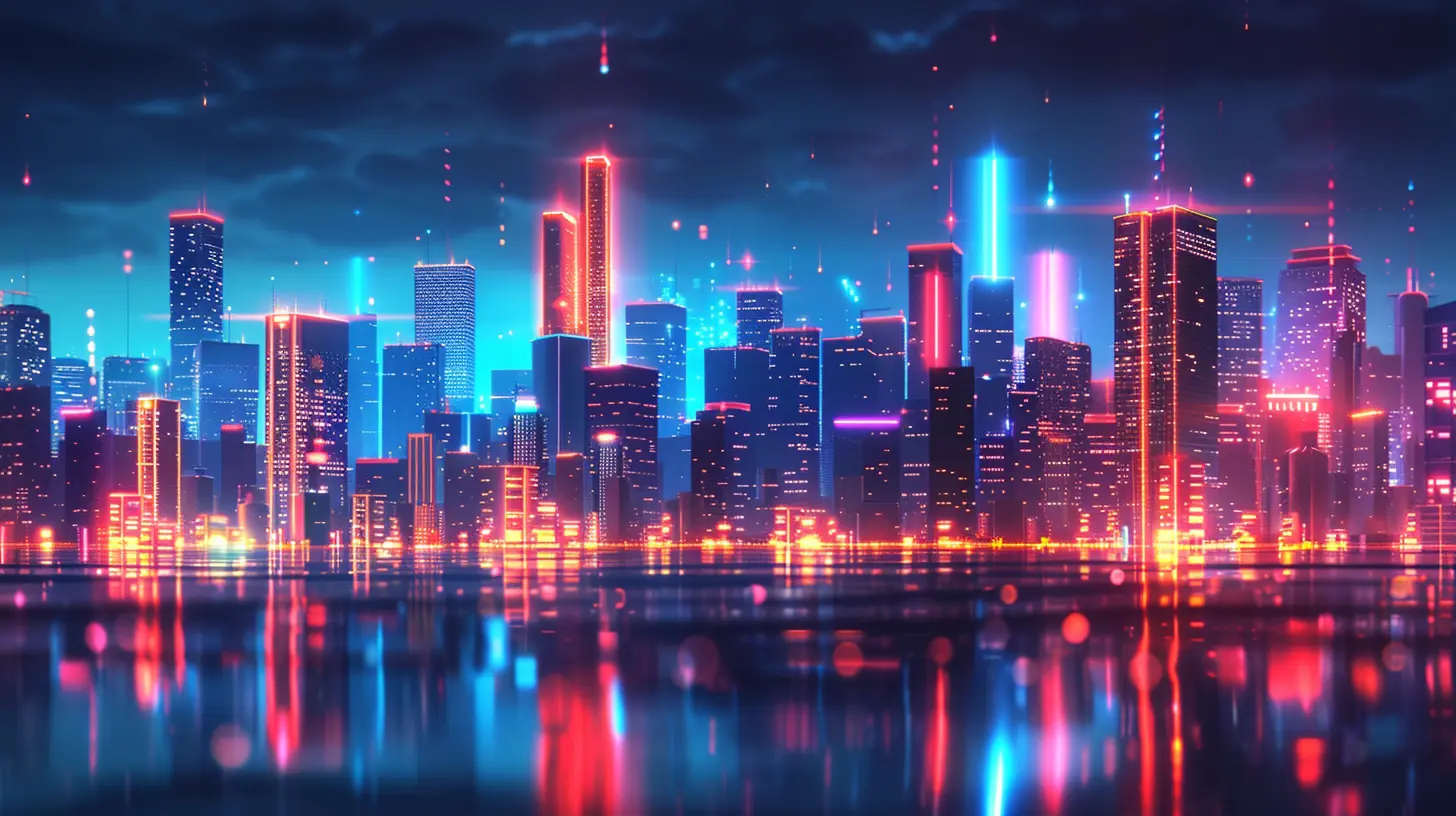
The Future of AI in Smart Cities
We’re just scratching the surface of what AI can do for urban living. As technology advances, AI will become even more integrated into city planning, enabling more personalized services, sustainable solutions, and efficient urban living.But there’s always the question of ethics and privacy. While AI brings incredible benefits, ensuring responsible AI use is crucial. Policies must balance innovation with privacy rights, ensuring that smart cities remain safe without becoming overly intrusive.
🌆 Are We Ready for Fully AI-Driven Cities?
With self-driving cars, AI-powered government services, and intelligent infrastructure on the horizon, the dream of a fully automated city isn’t far-fetched. The key is to blend innovation with human-centered policies, ensuring AI remains a tool for empowerment rather than control.The next wave of smart cities is being shaped today, and AI is at the forefront of this revolution. As urban populations grow, technology will continue to redefine how we live, work, and interact within our cities.
So, the big question is: are we ready for this AI-driven transformation? If done right, the future of smart cities won’t just be intelligent — it’ll be life-changing.
all images in this post were generated using AI tools
Category:
Future TechAuthor:

John Peterson
Discussion
rate this article
3 comments
Zinnia McIntosh
This article brilliantly highlights the transformative role of AI in developing smart cities. From optimizing traffic flow to enhancing public safety, the innovative applications of AI are crucial for creating sustainable and efficient urban environments for the future.
June 10, 2025 at 4:45 AM

John Peterson
Thank you! I'm glad you found the article highlights the critical role of AI in shaping smart cities. Your insights on its impact on traffic and safety are spot on!
Rhea Schultz
AI weaves dreams of urban life, brightening tomorrow’s streets.
May 31, 2025 at 3:16 AM

John Peterson
Thank you! AI is indeed transforming urban landscapes, making cities more efficient and vibrant for future generations.
Lily Collins
Who knew that the future of smart cities would involve AI and not just flying cars? If my refrigerator starts giving me unsolicited diet advice, I might reconsider my life choices! Here’s hoping AI doesn't decide to assign me a ‘traffic jam’ playlist for those gridlock moments!
May 27, 2025 at 10:49 AM

John Peterson
Haha, I get it! AI’s role in smart cities is definitely more about enhancing daily life than just flashy tech. Here’s to hoping our smart appliances keep the advice light-hearted!

